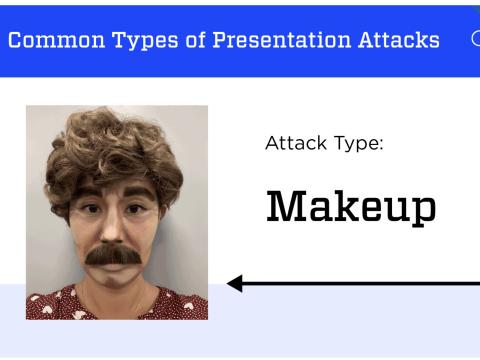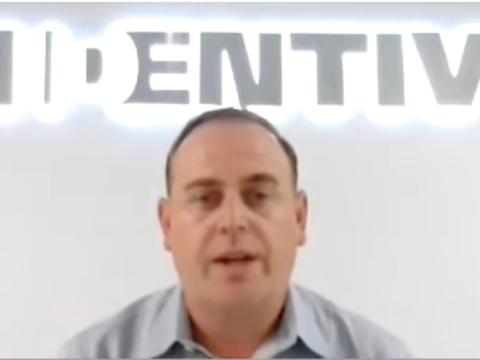White House Recovery Chief: Oversight Key to Beating ID Fraud in Government Programs
The key to combating fraud on government benefit programs during the pandemic lies in cooperating with oversight authorities and intergovernmental information sharing.
The key to controlling the epidemic of fraud that weak digital identity has unleashed on government benefit programs during the pandemic lies in cooperating with oversight authorities and intergovernmental information sharing, White House American Rescue Plan Coordinator Gene Sperling told AFCEA’s 2021 Federal Identity Forum and Expo Wednesday.
“I don't think any of us in the federal government can tell you with 100 percent certainty that somebody who has used an improper identity that was not their own and got an [unemployment insurance] benefit is not also somewhere else in the government using that to try and take an additional benefit,” he said.
"If someone is claiming unemployment benefit in one state and trying to get a loan as a small business owner in another, there's something wrong somewhere ... info sharing is the key," @WhiteHouse American Rescue Plan Coordinator Gene Sperling tells #FedID.
— Shaun Waterman (@WatermanReports) September 1, 2021
“Fool me once, shame on you,” Sperling added, quoting the old adage, “Fool me twice, shame on me. … It is one thing when a person or an entity is able to misuse identity to get a public benefit. But when that same identity is used in multiple states, or for multiple programs, then I think it is fair to say, shame on us.”
“So we need this data sharing across the U.S. government” as well as with state and local governments, Sperling said.
"This isn't your father's ... identity fraud" @WhiteHouse American Rescue Plan Coordntr Gene Sperling tells #FedID "It wasn't individuals ... This was criminal syndicates ... acting in an organized way" reusing stolen identities to defraud multiple relief progs in diffrnt states
— Shaun Waterman (@WatermanReports) September 1, 2021
“This is not your father’s … identity fraud,” where individuals sought to steal a few thousand dollars, he continued. Instead, these efforts involved “established criminal syndicates” setting up elaborate infrastructure to execute “very sophisticated, large-scale scams on the American taxpayer.” A single identity might be used to apply for unemployment benefits from 10 to 15 states at the same time; another to apply for benefits from two different federal programs.
“If we don't do anything here, I can't even imagine what the costs will be,” Sperling warned, “I wouldn't put it in the tens of billions. It could be hundreds of billions over the next decade. If we sit back and don't take action.”
"If we do nothing, I can't even tell you what the costs will be," @WhiteHouse American Rescue Plan Coordinator Gene Sperling tells #FedID. "Not 10s of billions but 100s of billions ... We need cross-government, inter-government identity solutions" not to mention impact on victims
— Shaun Waterman (@WatermanReports) September 1, 2021
To combat this, the administration has embraced oversight efforts by multiple agency inspectors’ general, Sperling said, and by the Pandemic Response Accountability Committee (PRAC), a special committee of the interagency watchdog group called the Council of the Inspectors General on Integrity and Efficiency.
PRAC had established an identity fraud task force to root out large-scale benefit cheating, which would work alongside the criminal interagency task force established by the Justice Department, and an initiative the president ordered, in which Sperling was working with Jason Miller, the Office of Management and Budget deputy director for management, to come up with a series of policy recommendations that would deal with the broad issue of identity theft and public benefits.
The two of them, Sperling said, had taken the unprecedented step of asking the chief information officer (CIOs) and chief financial officers of every agency in the federal government “to come together ... and to offer up recommendations to us based on their shared experience. One can definitely say that bringing together all of the CIOs of all the federal government departments on the issue of identity theft, and public benefits is not something that has ever taken place before.”
At the root, he said, all these initiatives were driven by President Biden’s determination to embrace and work with the oversight elements like IGs and government auditors. Sperling said that when he was first appointed to the job of coordinating the massive rescue packages pumping benefits to Americans and money into the economy, President Biden had briefed him, making it clear “he regarded it as really a betrayal of the American taxpayer, for people who were running or administering government programs, to have an adversarial relationship with oversight.”
"It is a betrayal ... for people charged with running big government programs to take ... an adversarial posture with regard to [inspectors general] and other members of the #oversight community," @WhiteHouse American Rescue Plan Coordinator Gene Sperling tells #FedID.
— Shaun Waterman (@WatermanReports) September 1, 2021
“Everyone is working on behalf of our country, on behalf of our citizens, on behalf of our taxpayers,” Sperling said the president reminded him. “And so … he really instructed me that, of course, you have to respect the independence and the appropriate (separate) roles” that overseers play, but that, “You want to draw on the expertise of those who are responsible for oversight. If something's going wrong, you want to be the first to know not the last to know ... so that you can start addressing those issues right away. And that was the attitude I took to heart.”
Sophisticated criminal players overseas prepare for hurricane season by buying up identities in areas forecasted to be hit by hurricanes, so they will be prepared to defraud relief programs when they launch, @WhiteHouse American Rescue Plan Coordinator Gene Sperling tells #FedID.
— Shaun Waterman (@WatermanReports) September 1, 2021





Comments